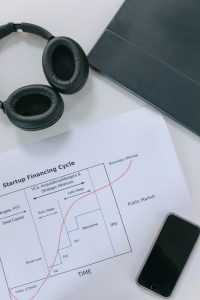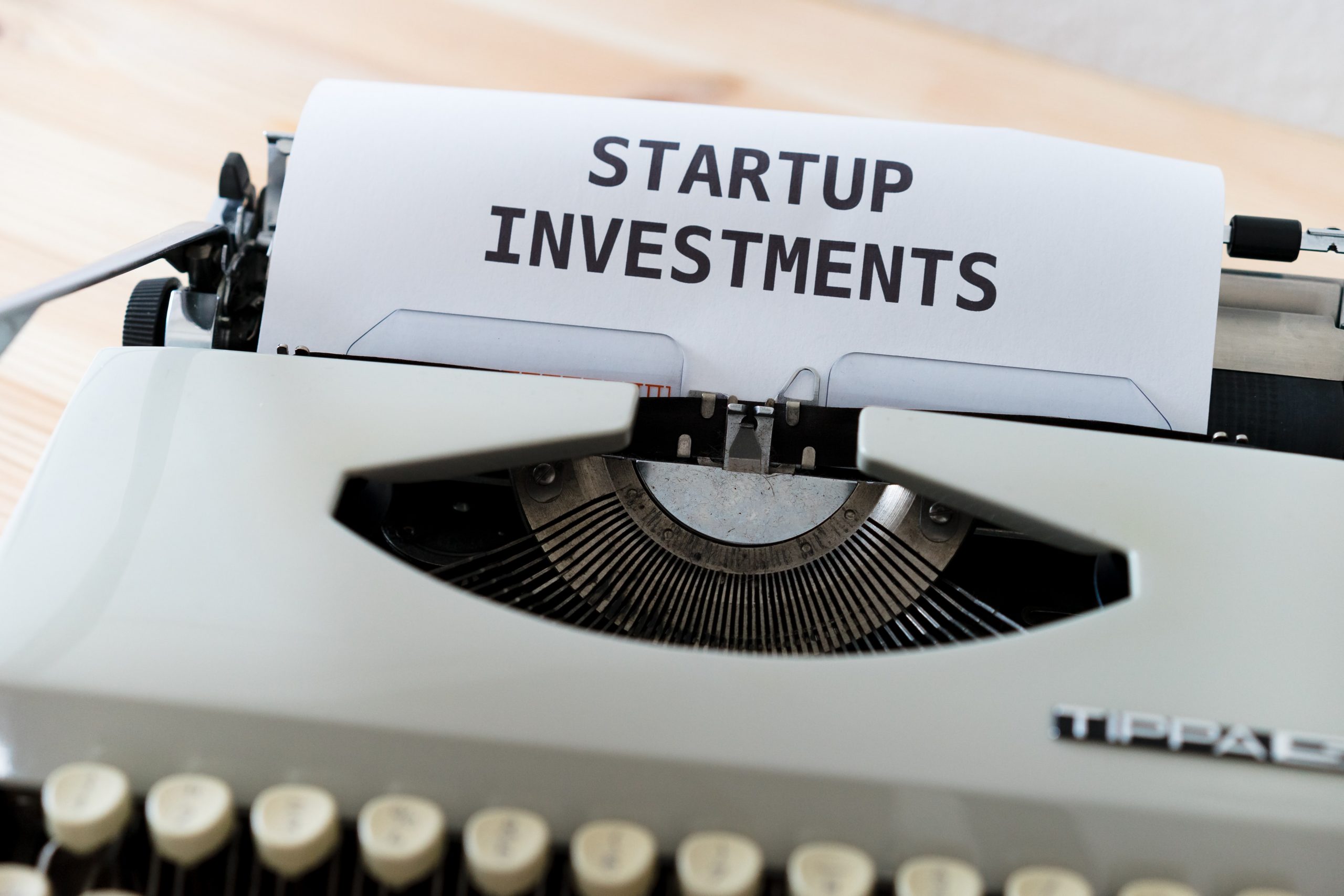Burgeoning homegrown startup Swvl, a bus app founded two years ago in Cairo, raised $42 million in June on plans to expand further in Africa. The money came from international venture capital firms Vostok of Sweden, Dubai-based BECO Capital, China’s MSA and Endeavor Catalyst of New York. Swvl currently operates in Egypt, Kenya, Nigeria and Pakistan.
However, it reportedly intends to move its headquarters to Dubai.
“Investors and entrepreneurs look at Egypt’s legal framework as complicated and thus choose to go down the route of moving abroad,” says Cairo attorney Loay El Shawarby.
Egypt has ramped up entrepreneurial activity during the past few years to become the fastest-growing ecosystem in the Middle East and North Africa (MENA) region, according to MAGNiTT, a data platform for startups.
Still, many startups and funds incorporate abroad and establish subsidiaries in Egypt, says El Shawarby, because of the accessible and clearer governance mechanisms present in offshore jurisdictions.

Regional leaders
Governments across the region are focused on developing supportive entrepreneurship environments. The first half of 2019 saw $471 million in total funding in MENA, an increase of 66 percent compared to the previous year, as well as a record number of deals, according to MAGNiTT. Last year, MENA startups attracted $893 million in seed funding, up 31 percent from 2017.
The U.A.E. drives entrepreneurship in the region, accounting for 66 percent of the capital invested in MENA startups during the first half of the year and 26 percent of the deals, according to MAGNiTT.
Dubai has the most developed ecosystem, with a concentration of multinationals’ regional headquarters, major funding institutions and accelerators. In 2017, the U.A.E. became one of the first countries to appoint a minister of artificial intelligence. In addition, the Dubai International Financial Centre announced last month the registration of more than 100 firms — a threefold growth since the end of 2018.
This year alone, the U.A.E. said, 122 businesses on the mainland would allow 100 percent foreign ownership. The U.A.E. also launched a “virtual company license” last month that enables citizens of 101 countries to run businesses in the Emirates without requiring residence, according to El Shawarby. The U.A.E. also has many free zones that allow ownership of businesses by foreigners.
A common challenge to setting up a business is access to bank services. However, both Mashreq Bank and Emirates NBD have established digital banking for corporates, SME10x Magazine reported last month. In addition, the government has worked to attract international accelerator programs that both support and invest in startups.
The U.A.E. also adopted several reforms to support entrepreneurship, such as reducing the timeframe for payments that SMEs receive for supplying goods and services to government agencies from 90 days to 30 days, and earmarking 5 percent of public capital projects, worth up to AED 400 million ($109 million) for SMEs.
In Saudi Arabia, authorities are keen to diversify the country’s oil-based economy and last year established funds to attract foreign investors in startups, Al Sharq Al Aswat newspaper reported. Saudi authorities match investments dollar-for-dollar as a limited partner in any new fund that commits to investing in the country.
In line with its Vision 2030, Saudi Arabia launched multiple government initiatives to spur entrepreneurship and innovation in order to become a hub for entrepreneurship in the region, says Philip Bahoshy, founder and CEO of MAGNiTT. “These include government-backed initiatives such as licensing opportunities for venture capital firms and startups, investment in local venture capital funds and funding platforms for SMEs, as well as incubators and accelerators,” he says.
Moreover, the establishment of Saudi Arabia’s General Authority for Small and Medium Enterprises (Monshaat) in 2016, was a key step toward the development of the sector. At the end of 2018, Monshaat set up a support center model for SMEs to provide training, advice and mentorship services. It also launched government-owned Saudi Venture Capital Co. worth SAR 5 billion ($1.33 billion) to invest in startups and venture capital funds.
Last year, the Saudi Arabian General Investment Authority announced it would grant licenses to foreign investors within four hours, compared to the previous average of 53 hours, Al Sharq Al Awsat reported. Authority data shows that 267 licenses were issued to foreign investors during the first quarter of 2019, a year-on-year increase of 70 percent.
Meanwhile, Morocco and Tunisia are investing heavily in high-tech ecosystems. Tunisia recently passed laws supporting tech innovation and in September it hosted Afric’Up, a pan-African startup-pitch competition.

Unicorns in the making
With a population of more than 100 million, Egypt is seen as one of the MENA region’s largest nascent markets for entrepreneurs.
Unicorn refers to startups that reach a value of $1 billion—Careem was the Middle East’s first—and Egypt has yet to see one. Egyptian ventures on their way to Unicorn status are Vezeeta, which offers online medical scheduling; Wuzzuf, a job recruitment service; and Instabug, which identifies and reports software bugs.
Egypt was the fastest growing startup ecosystem in the MENA region and second-largest after the U.A.E. last year in both the number of deals and total funding, according to MAGNiTT. The country accounted for 21 percent of all deals and 12 percent of total financing in the first half of 2019, says Bahoshy, who wrote the report.
Egypt’s entrepreneurial ecosystem and its participants have gotten more mature and aware, says Abdelhameed Sharara, founder and CEO of RiseUp Summit, a platform that connects entrepreneurs with investors. “The glamour is starting to fade,” says Shahara. “Egypt’s ecosystem now understands that entrepreneurship is much more than just the limelight and pitch competitions.”
Ayman Ismail, chair of entrepreneurship and an associate professor at the AUC, shares Sharara’s sentiments, adding that the perception of entrepreneurship in Egypt has changed from being a “necessity business” to an “opportunity business.” At some point, he continues “entrepreneurship used to be the go-to job when someone couldn’t find a job. Now we see mid-career professionals with a higher level of innovation, looking for opportunities in the digital startup business,” explains Ismail.
Bossed to boss
Numerous venture capital firms, accelerators and incubators in Egypt offer mentor programs, funding, networking and office space. At the start of their growth cycle, entrepreneurs look for accelerators and incubators, through which they often have a better chance of attracting a top venture capital firm.
Flat6Labs is the most prominent accelerator in Egypt. It was the only one until 2017, when the government established Falak Startups and Egypt Ventures, an investment fund. Falak also launched an acceleration program dedicated to fintech. Moreover, EdVentures is an ed-tech accelerator started by one of the country’s leading publishers and TechSpace is a Nile University incubator with a focus on blockchain startups.
Government-led Falak offers to fund as much as EGP 1 million for equity of 5-10 percent for a six-month acceleration program. Flat6Labs Cairo was often criticized for not offering enough money for the 10-20 percent stake it acquires, notes Nihal Al Chami, program coordinator at Falak Startups. “Competition pushed Flat6Labs to shift its model and offer more money to better serve entrepreneurs,” she says.

With a fund of EGP 100 million, Flat6Labs aims to invest in 100 early-stage startups and at least 300 entrepreneurs over five years. Every six months, Flat6Labs Cairo provides seed capital of up to EGP 500,000 to 10 startups in exchange for 10 percent equity.
Al Chami notes that through her work at Falak, she believes that dysfunctional teams can be a bigger challenge than financing.
Bahoshy of MAGNiTT agrees. “Startups are only as good as the teams they assemble,” he says. “As they grow and scale, being able to hire the most qualified talent for those roles is essential.”
Al Chami notes that young entrepreneurs often are mistaken when they think they will make their own decisions. “This is not true,” she says. “The market itself bosses an entrepreneur, the customers and investors.”
AUC Venture Lab’s (V-Lab) acceleration program, founded by Ayman Ismail, also has a good reputation among Egyptian startups. “To date, V-Lab has supported 180 startups throughout 12 cycles and raised EGP 1.5 billion in investments. Forty-eight percent of its accelerated startups received funding, and 80 percent of the startups it graduates are still up and running, including Swvl and X-Pay,” Ismail says.
V-Lab does not take any equity from participating startups during the 16-week program, Ismail notes. The university-based startup accelerator offers two tracks: general and fintech.
The program focuses on tech-enabled startups in e-commerce (Sponsored by Arab African International Bank), energy sustainability (sponsored by Shell), fintech (sponsored by CIB), creative industries (sponsored by Drosos Foundation), and healthcare.
All about the angels
The challenges for Egyptian startups shift as the ecosystem matures. Five years ago, uncertainty loomed over access to talent. Today, market players are generally more concerned with the red tape involved, as reflected in the trend for homegrown companies to move their headquarters abroad.
And yet, access to finance remains a valid concern and a hurdle to growth. “Several regionally-based Egyptian funds have invested and promoted investment in the region,” Bahoshy says.
However, many believe the funding is insufficient. “Whatever we have now, it’s a drop in the bucket,” says Ismail. “We need much more money and funding.”
Tarek Assaad, managing partner at Algebra Ventures, a $50 million venture capital firm in Cairo that invests in early-stage technology companies, agrees. “We’re happy at the pace at which we’re investing, but there’s certainly a funding gap in the $200,000 to $1 million range,” Assaad told The National last month.
One sign of a maturing startup ecosystem is increased participation by angel investors – wealthy individuals that put money in startups to kickstart operations and accelerate their growth.
While Egypt has seen an increased reliance on angel investors, the country remains in dire need of more.
Founded in 2012, Cairo Angels has more than 45 investors in its network. To date, $2.4 million has been invested in 24 startups in six cities, says Ahmed Samir, the firm’s project manager. Samir says six of those startups—Instabug, Eventtus, Orcas, Buseet, Taskty and Play 3arab—“have shown really good post-investment growth,” notes Samir. Typically, startups come to Cairo Angels when they run out of other sources of funding, he says.
Unlike Ismail and Assaad, Samir sees no shortage of angel investors in Egypt. “There are plenty of people who have the financial ability and business know-how to qualify them to be angel investors,” he says. “The main problem is connecting those potential investors to high-potential startups.”
Meanwhile, a limited pool of angel investors exists due to the risky nature of startup investments, says Ismail, who is also an angel investor and member of AUC Angels. “It’s not like putting your money in a bank,” he adds.
Angel investors need to understand entrepreneurship and be aware of technology-driven opportunities. Out of a total of 100 to 150 potential angel investors in Egypt, only 20 are active, he says, investing once or twice per year. Ismail and AUC Angels are starting to build this culture in Egypt by educating investors on how to value a company and conduct due diligence assessments.
“Egyptian investors need to understand how startups differ from other kinds of investments,” said Mohamed Khedr, managing partner at Endure Capital, an early-stage investment venture capital firm to Wamda in August. “Investors are used to dividends. They find it difficult to supply startups with money for seven or 10 years,” said Khedr. Many investors “do not grasp they can have a maximum 30 percent stake because the founders still have upcoming investment rounds and stakes to share and do not want to end up with a share of 3 or 4 percent.”
Pushing legal barriers

Another crucial challenge facing entrepreneurs and startups in Egypt is regulatory difficulties. These begin with the government bureaucracy and the steps required to execute a simple process, said Youssef Sallam in a note for Al Tamimi and Co. law firm.
For example, startups aren’t defined within legal frameworks, says attorney El Shawarby.
The Egyptian legal system deals with all companies the same with no mention of the scale of the business, he says. El Shawarby nevertheless praises Egypt’s efforts to facilitate the licensing process to register companies over the past couple of years.
From a structural perspective, incorporating a company in Egypt is still comparatively harder than in many other jurisdictions. With the establishment of the Investor Service Center and amendments to the Companies Law legistlations, the process has become more accessible in recent years, says El Shawarby.
However, maintaining a company is still somewhat tricky. “Not only is it difficult for investors to clearly understand the processes required to keep a company in good standing,” says Sallam, “but the processes themselves also are not easy to execute.”
El Shawarby further recommends introducing new laws explicitly for startups, such as a shareholders agreement and regulations to ease taxation and financial restrictions.
As an example, he cites the bankruptcy law, whose amendments were put into effect last year. He claims the process can take up to eight months, which is an added burden on a company that is already struggling financially. “There should be easy market entry, smooth operation and easy market exit, which isn’t the case,” El Shawarby adds.
Under the current situation, a company’s capital has to be fully subscribed. That 100 percentl subscription doesn’t leave room for stock option pools, which companies typically use to attract top talent from abroad, El Shawarby explains.
While Egypt’s standing in the World Bank’s Ease of Doing Business rankings has improved, there is still a long way to go. Other countries in the region such as the U.A.E. and Saudi Arabia fare significantly better on almost every metric, according to Sallam.







